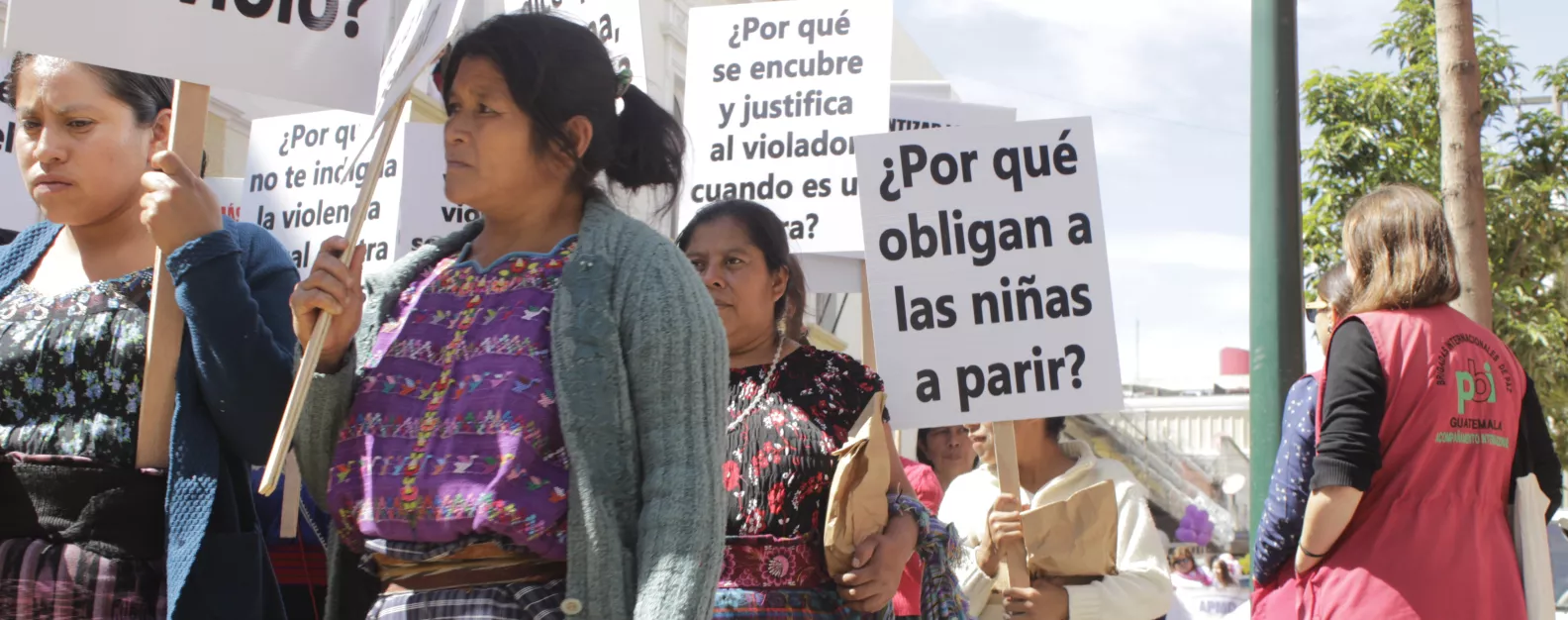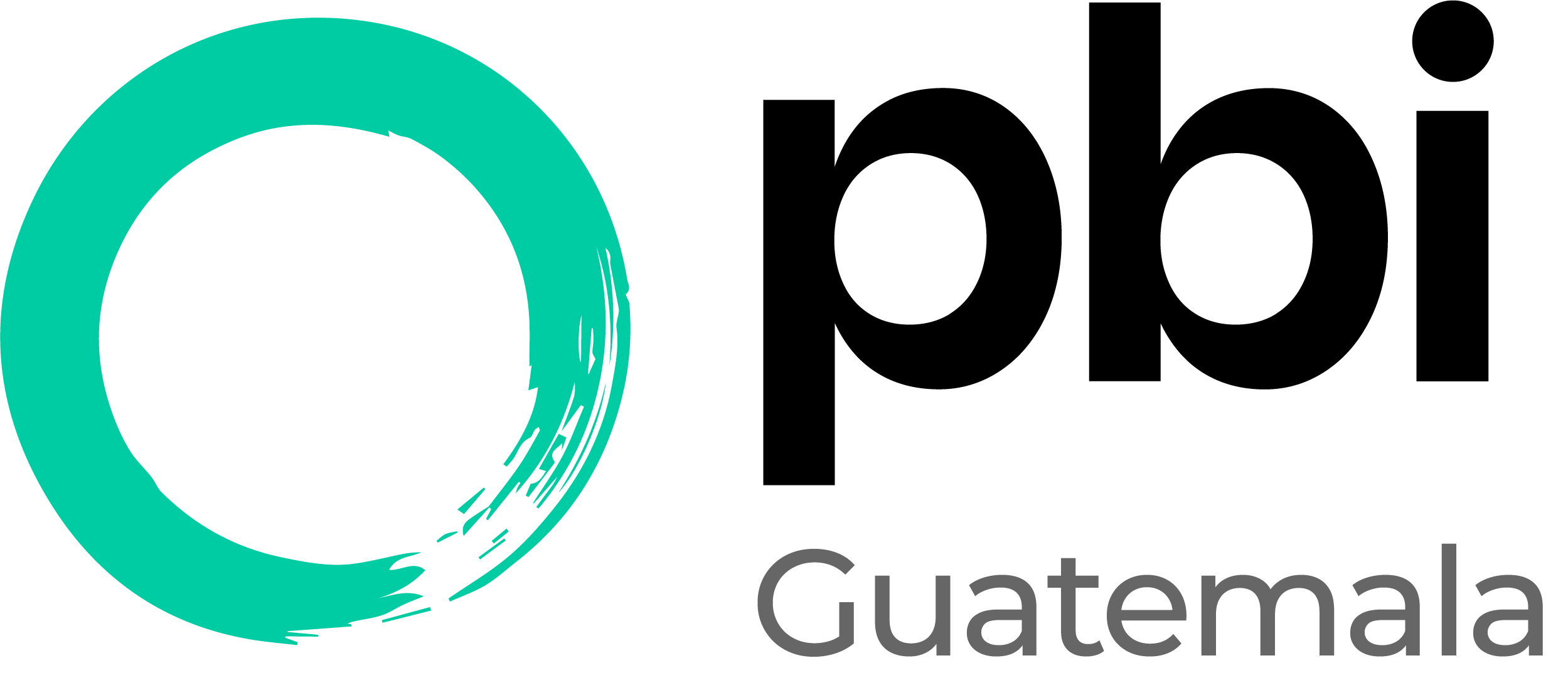
PBI defines three broad thematic approaches to accompany organizations of human rights defenders and the social processes they are involved with: (i) the struggle against impunity, (ii) Access to land, and (iii) Defence of territory.
The latest external evaluation of PBI Guatemala (2022), concluded that there was a broad consensus among the people interviewed regarding the validity of a thematic approach: they cover the three levels of the country’s structural violence; inequality, human rights violations and political violence that characterizes the current situation and that, in the short and medium term, will continue drawing the lines of conflict and resistance in the country and its consequent framework of human rights.
The struggle against impunity
Within the framework of this thematic approach, PBI prioritizes accompaniment to the following social processes: recovery of historical memory, the search for justice, reparation and dignification of the victims of the internal armed conflict and the fight against all forms of repression suffered by human rights defenders.
Despite the great achievements of transnational justice in recent years (Genocide Ixil case, Massacre of the Spanish Embassy case, Sepur Zarco case, Molina Theissen case, Achí women case etc.), there is still a long way to go to achieve justice, dignity and reparation as well as guarantees of non-repetition for crimes during the internal armed conflict (1960-1996).
In this context we accompany the Human Rights Law Firm (BDH), Association of Relatives of the Detained and Disappeared of Guatemala (FAMDEGUA), the family of Luz Leticia and the Association for Justice and Reconciliation (AJR).
Access to land and defence of labour rights
The Agreement on Socio-economic Aspects and the Agrarian Situation (1996) points out that a sustainable and lasting peace must be based on a socio-economic development oriented to the common good that responds to the needs of the entire population, in order to overcome poverty, extreme poverty, discrimination and social marginalization. The Peace Accords develop a set of guidelines to address the agrarian situation and rural development as well as a goal of transforming the structure of land tenure and use.
In 2017, more than 20 years after the signing of the peace deal, the structural problem; the unjust distribution of land, which generates high rates of poverty, malnutrition and exclusion, is even more pronounced than at the end of the war. The UNDP stated in 2017 that inequities, weak state institutions and land concentration continue to make it impossible to improve livelihoods.
Forced evictions have continued to be a central concern of rural organizations and communities in various regions of the country, even though families and communities are in the process of negotiating and dialogue with the government’s agrarian institutions (Land Fund and Secretariat of Agrarian Affairs) to regulate their right to access the land.
In this thematic area we accompany the Veracruz Union of Peasant Organizations (UVOC) and the Mayan Q’eqchi’ defenders Lesbia Artola e Imelda Teyul, which advises communities that demand their right to land in a region where large estate landownership prevails.
Defence of territory
Numerous indigenous and campesino communities, committed to defending the territory and natural assets, have denounced the intervention of private companies in various geographical areas through the imposition of extractive projects (mining, hydroelectric, petrol, monoculture, etc.). Many of these projects have begun without prior consultation or, in areas where consultations have taken place, are going ahead despite the lack of consent of the affected communities and indigenous peoples. Within the framework of the social and community resistance processes articulated in the country, many human rights violations have been denounced, as have attacks against those who defend them. The characteristics of the context reflect the need to maintain international attention on the situation of human rights in Guatemala and the people who defend them, with particular concern for the situation of social actors who defend land, territory and natural resources and who struggle for the collective rights of indigenous peoples.
This theme is the area of focus of the majority of accompanied organizations, groups and communities:
the Chinautla Multisector in the department of Guatemala,
the Maya Ch’orti’ Indigenous Council of Olopa in the department of Chiquimula,
the Indigenous Community of San Francisco Quezaltepeque is located in the municipality of the same name, in the department of Chiquimula
the Network for the Defense of Food Sovereignty REDSAG, which has a presence in six regions of Guatemala: Petén, Alta Verapaz, Baja Verapaz, the East, the Center, the South, and the West.
Carlos Ernesto Choc, a Q’eqchi’ journalist who accompanies and documents the voices of the Maya Q’eqchi’ people in the face of human rights violations and environmental impacts caused by extractive industries.
